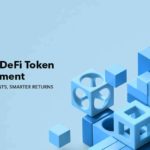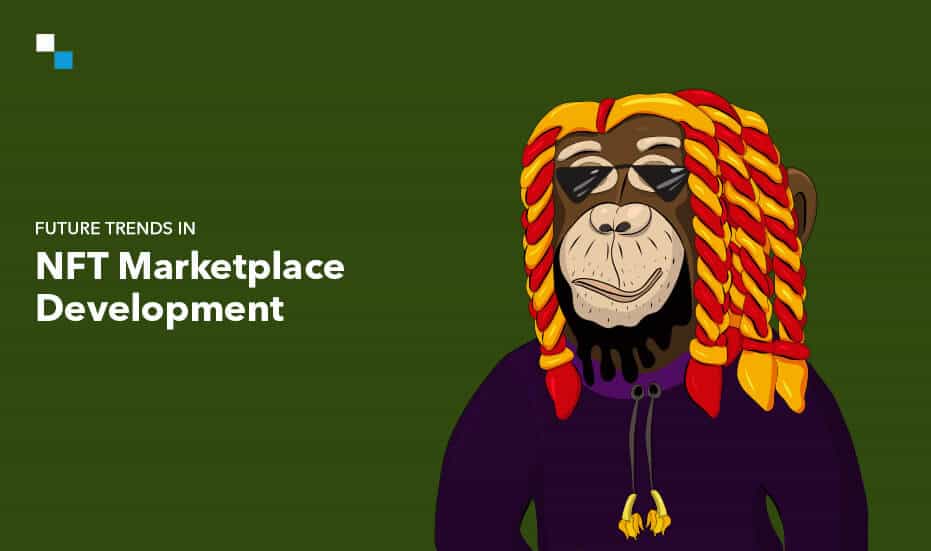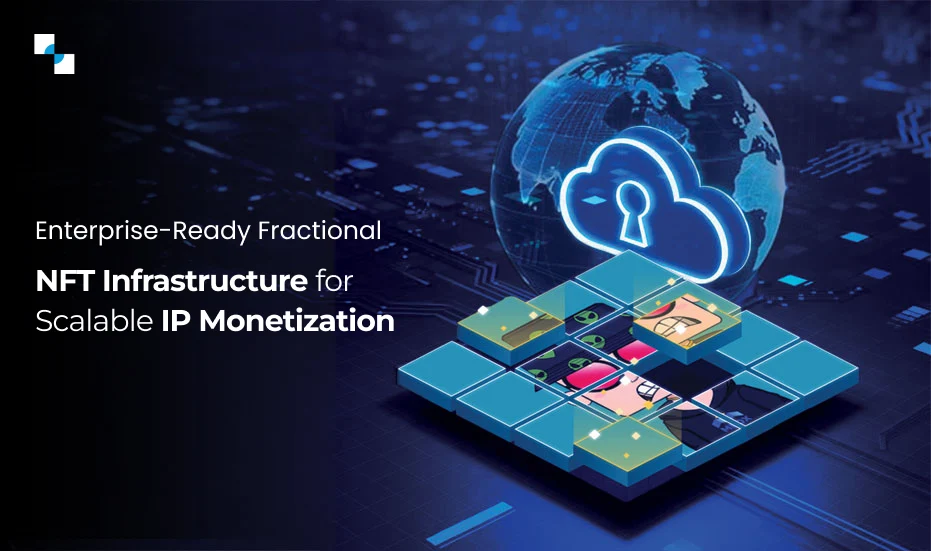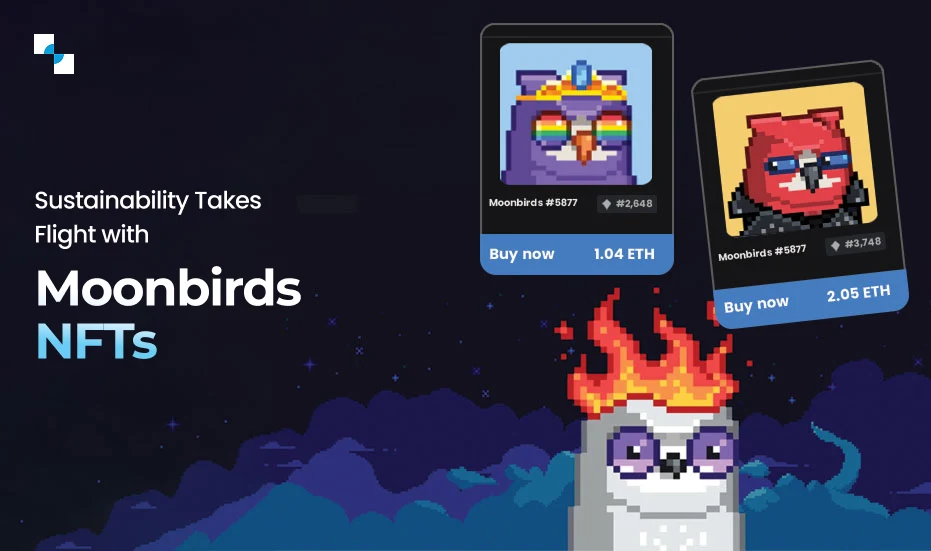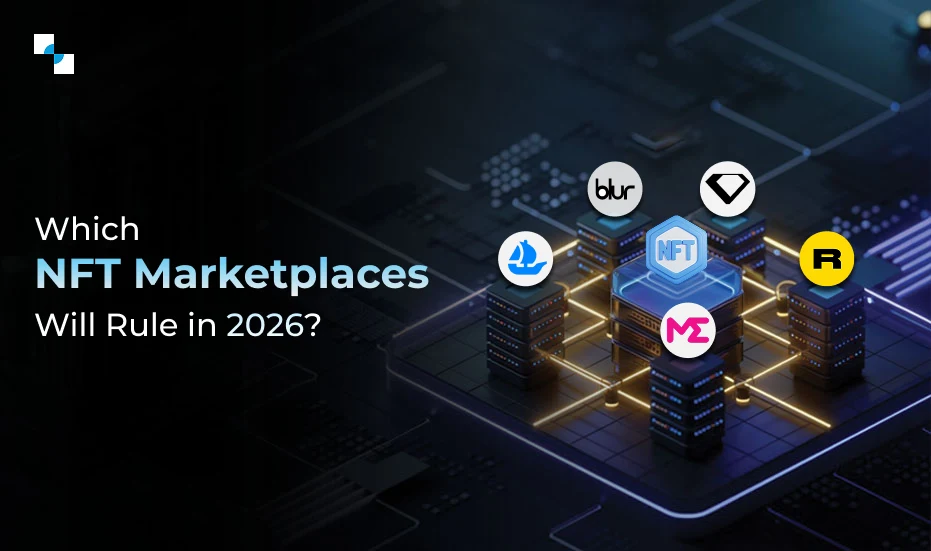As we increasingly migrate into a digital age, Non-Fungible Tokens (NFTs) have become a hot topic in the tech world. These unique tokens are revolutionizing multiple industries, from art to finance, gambling to gaming, and even propelling us into the uncharted territory of the metaverse and real-world tokenization.
Let’s delve into the future trends of NFT marketplace platform development.
The Art World’s Digital Renaissance Through NFTs
Artistically speaking, NFT marketplace development is fueling a modern-day, digital renaissance. No longer limited by the boundaries of traditional mediums, artists are now harnessing the power of NFTs to generate profit from their digital creations. With every piece of digital art being tied to an NFT, artists can guarantee the uniqueness and authenticity of their work, stored securely on the blockchain.
In an industry that has often left creators struggling for revenue, you can build an NFT marketplace to make a revolutionary shift and allow artists to reap financial benefits directly. As the owner of the NFT, the artist holds undeniable rights to their work, making it a powerful tool against unauthorized replication or resale.
However, the advantages of NFT marketplace platform development don’t stop there. Predictions indicate a future where the art industry harnesses the potential of immersive technologies like Virtual Reality (VR) and Augmented Reality (AR). Imagine walking through a virtual gallery, interacting with digital art pieces, all powered by NFTs. This amalgamation of art and technology can offer unparalleled, immersive experiences, taking art appreciation to a whole new level.
NFTs are not just revolutionizing the art industry; they’re redefining it, adding a unique twist to the age-old tradition of art collection. They offer an exciting glimpse into the future, where art extends beyond physical galleries and canvases into the limitless realm of the digital world. The advent of NFTs in the art world has indeed sparked a vibrant, digital renaissance.
Disrupting Finance with NFTs: DeFi and Beyond
Within the sphere of finance, NFTs are becoming a force to be reckoned with, sparking substantial shifts, especially in the realm of Decentralized Finance (DeFi). One of the transformative phenomena of NFT marketplace development is to facilitate fractional ownership. This presents a unique opportunity to decentralize access to high-value assets, making investment more inclusive and diversified.
Beyond that, NFTs are also paving the way for intangible assets to gain a tangible presence. They can offer incontrovertible proof of ownership for assets that lack physical form, such as copyrights, patents, or trademarks. This can drastically simplify the process of protecting and transferring these assets, offering an effective, blockchain-based solution.
- When you get ready to build an NFT marketplace, you can enjoy the fusion of DeFi and NFTs that redefine asset management.
- With NFTs providing verifiable ownership, the landscape of lending could undergo a significant overhaul.
- Traditional systems could be replaced by NFT-backed loans, with digital assets acting as collateral.
- In terms of insurance, NFTs could lead to the creation of personalized policies, tailored to individual assets and their unique attributes. This can make the insurance process more accurate, transparent, and flexible.
- The investment sector is also bracing for the impact of NFTs. We could see the rise of NFT-based funds, with investors buying shares in a collection of digital assets. This would give them exposure to the burgeoning NFT market, without requiring them to directly own or manage individual tokens.
All in all, the integration of finance during NFT marketplace platform development will be an evolutionary step. As we venture further into this digital age, the fusion of DeFi and NFTs is poised to open up new financial avenues, marked by inclusivity, transparency, and innovation. The possibilities are vast and the potential is immense. This is not just a glimpse into the future of finance, it’s a preview of the new normal.

Placing Bets on the Future: NFTs and Gambling
The game of chance is adopting a game-changer with the incorporation of NFTs. With a future steeped in the ethos of digital innovation, the realm of gambling is no exception to the sweeping NFT marketplace development wave. Traditional online casinos and betting platforms may soon make way for blockchain-empowered alternatives, providing a unique and transparent gambling environment.
In this evolving landscape, the introduction of unique in-game items as NFTs can dramatically alter the player’s experience. Imagine owning an NFT that bestows you with exclusive features or capabilities, injecting a fresh layer of engagement and excitement into the gambling experience. When you build an NFT marketplace, you provide a home for digital tokens, authenticated on the blockchain, you can bring more than just novelty; as NFTs can bring a heightened sense of ownership and personalization.
Interestingly, the true revolution lies not just in the enhancement of user experience, but also in the transparency and fairness that NFTs can introduce to online gambling. NFTs can help eradicate the shadows of doubt that often lurk around online gambling platforms by offering indisputable proof of randomness. This could significantly reduce the risk of manipulation, leveling the playing field for all participants.
NFT marketplace platform development is advantageous for the gambling sector. Consider the possibility of unique, NFT-backed rewards that players can earn, trade, or sell. In addition, the potential for provably rare lottery tickets as NFTs brings a new dimension of fairness to draws. Even the incorporation of NFTs into sports betting could offer unprecedented opportunities for fan engagement and ownership.
As we stand at the cusp of this new era in gambling, the impact of NFTs can hardly be overstated. This digital innovation is not just reshaping the gambling industry, it’s injecting it with a dose of thrill, fairness, and unique value. As we place our bets on the future of gambling, it’s clear that NFTs hold a winning hand.
Also Read: How Much Does NFT Marketplace Platform Development Cost in 2024?
Leveling Up Gaming with NFTs
Step into a virtual world where gaming and economics merge and the landscape is transformed by the integration of NFTs. NFT marketplace development is powering a shift in the gaming industry, introducing an element of tangible ownership and opening up unprecedented opportunities for gamers.
The beauty of NFTs lies in their uniqueness and indivisibility. When you build an NFT marketplace, it allows game players to own specific digital assets, which could range from characters and weapons to special abilities or rare artifacts. However, these aren’t just virtual trophies to be admired. Rather, in an NFT-powered gaming ecosystem, players can buy, sell, or trade these digital assets, providing them with a means to monetize their gaming skills and achievements.
Imagine defeating a formidable adversary and acquiring a rare, coveted weapon in the process. However, this isn’t just any weapon; it’s a unique asset tied to an NFT. You have the option to wield it in your future quests, flaunting your victory. On the other hand, you could choose to sell it off to the highest bidder or trade it for another asset that better suits your gaming strategy. The possibilities are endless.
Game developers, too, stand to gain from this new gaming economy that is powered by NFT marketplace platform development. Game developers can incorporate NFTs into their games, as they can create scarcity and uniqueness, adding an exciting twist to the gaming narrative. What’s more, they can incentivize players with real-world value, fueling engagement and potentially even creating a loyal, invested user base.
The evolution of NFTs in the gaming industry could even blur the lines between virtual and real, creating game-based economies where virtual assets hold substantial real-world value. In this gaming utopia, the players don’t just play; they invest, trade, and potentially earn.
As we look towards a future where gaming consoles and blockchain wallets might become an interlaced reality, it’s clear that NFTs are set to redefine the rules of the game, quite literally.
Metaverse: The New Frontier for NFTs
The road of NFT marketplace development can pass through the uncharted territories of the metaverse, where NFTs become the passport to a new kind of digital existence. Imagine a parallel universe, a mirror image of our physical reality, where interaction, commerce, and entertainment get a digital makeover.
NFTs become the currency of this digital realm of Metaverse, enabling ownership of virtual properties, digital costumes for your avatar, or even one-of-a-kind virtual characters. They enable a new kind of commerce in the metaverse, where digital real estate can be bought, sold, or rented, where unique digital outfits can be flaunted at virtual social gatherings, and where your avatar can be as unique as you want it to be.
This virtual universe powered by NFTs isn’t just about fun and games; it’s also about business. Imagine virtual storefronts where you can shop for digital goods, or virtual concert halls where you can experience a live performance by your favorite artist, all from the comfort of your own home. All these transactions, the tickets, the merchandise, the experiences, can all be owned and traded as NFTs.
However, it’s not just about commerce, it’s also about social interaction. The metaverse, powered by NFTs, can offer a new platform for community building, networking, and socialization. From virtual meetings and conferences to casual hangouts and parties, the metaverse can be a vibrant social hub, where your NFTs can unlock unique experiences and interactions.
The integration of NFTs in the metaverse opens a whole new chapter in the digital age, where the boundaries between the physical and the virtual blur, where your digital identity and assets gain tangible value. As we step into this exciting new frontier, and build an NFT marketplace, it will help unlock the limitless potential of including finance in the metaverse.

Real World Tokenization: Bridging Digital and Physical
The grand finale of NFTs’ transformative journey takes us into the realm of real-world tokenization, a revolutionary concept where the physical and digital worlds converge. Imagine a world where tangible assets such as real estate, automobiles, or even high-fashion garments could be represented by NFTs. This remarkable innovation of NFT marketplace platform development doesn’t just stop at representing these items; it allows fractional ownership, an evolution that democratizes access and enhances liquidity in a world traditionally dominated by full ownership.
Consider the potentially profound impact of NFT marketplace development on real estate. Property, often seen as an asset class that requires hefty investments, could be fractionalized via NFTs, enabling more people to invest in and benefit from it. This could introduce an unprecedented level of diversity and accessibility in real estate investments.
Imagine owning a fraction of a rare vintage car or a limited-edition designer outfit. The potential to monetize and democratize access to a wide variety of physical assets through NFTs is indeed groundbreaking.
The concept of real-world tokenization via NFTs also promises to streamline transactions. Transferring ownership of physical assets can be a time-consuming process laden with paperwork. You can build an NFT marketplace to simplify this, as it will automatically provide ownership rights for securely stored NFTs that are easily transferable on the blockchain.
However, it’s important to remember that we’re at the beginning stages of this exciting journey. The concept of tokenizing physical assets with NFTs is still in its infancy, with many legal, logistical, and technical issues yet to be ironed out. Despite these challenges, the potential for disruption is immense, and the implications are far-reaching.
The integration of artificial intelligence and machine learning will also play a significant role in the future of NFT marketplace platforms. These technologies can enhance curation and discovery, enabling users to find relevant and valuable NFTs more efficiently. AI algorithms can analyze user preferences and trends, providing personalized recommendations and creating a tailored user experience.
Conclusion
The future of NFT marketplace platform development is filled with immense potential. From arts to finance, gambling to gaming, and metaverse to real-world tokenization, NFTs are transforming industries and creating new opportunities.
Eager to build an NFT marketplace? Well, you can dive into the world of NFTs with Antier, a trailblazing NFT marketplace development company. Unlock limitless possibilities of tokenized assets, secure transactions, and seamless user experience. Begin your NFT journey now!
